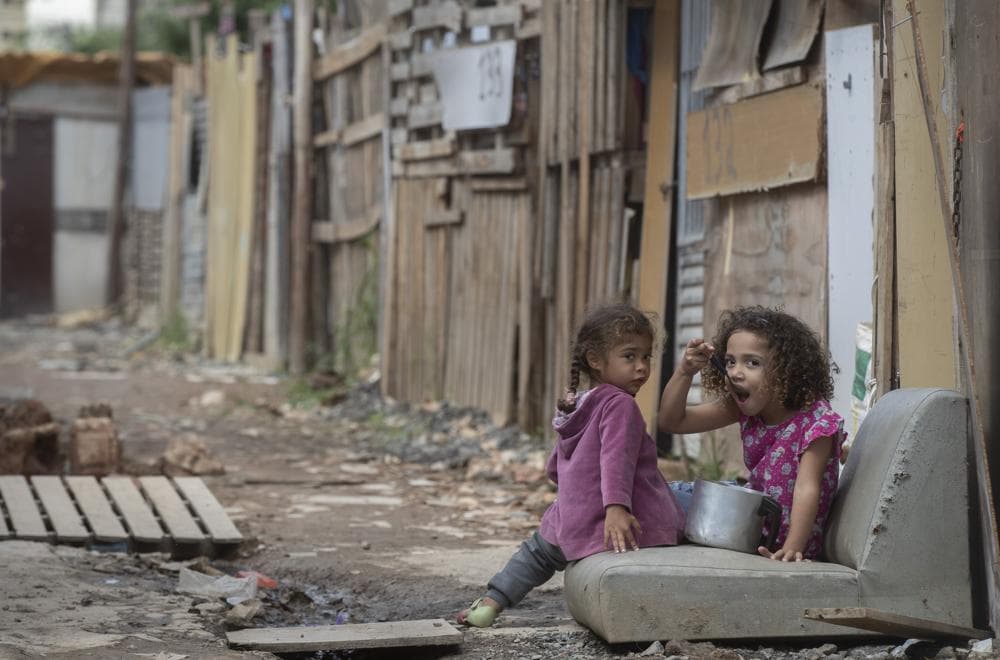SÃO PAULO – Since the National Conference of Bishops of Brazil (CNBB) announced that hunger was the theme of its 2023 Fraternity Campaign – a Lenten drive to collect funds for Catholic social works – Traditionalist Catholics have been accusing it of perverting the true significance of the penitential season with left-wing politics.
Fraternity Campaigns have been promoted by the CNBB since the 1960s and have always dealt with social issues and raising awareness among Catholics about the Brazilian inequalities. Over the years, themes have included racism, unemployment, migration, environmental destruction, and Indigenous peoples.
That is not the first Fraternity Campaign to deal with hunger – for example, it was the theme in 1985. However, the politically charged atmosphere in Brazil since the presidential elections last year – when left-winger Luiz Inácio Lula da Silva defeated right-winger Jair Bolsonaro by a slight margin – has also affected the Church.
Many critics are opposed to the Church denouncing the hunger in Brazil after Bolsonaro’s tenure and claim the theme is related to party politics.
One of the groups that have been campaigning against the 2023 Fraternity Campaign is Centro Dom Bosco (CDB), a traditionalist Catholic group. On its social media, CDB posted a video in February criticizing CNBB for the campaign.
“Official data released by the World Bank showed that in 2020 there was a record drop in extreme poverty in Brazil. That is a problem that has been reduced over the past few years,” Álvaro Mendes, CDB’s vice president, told Crux.
In his opinion, this year’s edition is not an exceptional case.
“Fraternity Campaigns tend to have a political nature every year because they are conducted by revolutionary bishops, who are prone to disregard that the Church’s goal is to save souls,” Mendes claimed.
He emphasized that Lent is a time of prayer, fasting, and penance, and the Fraternity Campaigns “distort its real meaning by replacing the spiritual dimension with a materialistic and revolutionary approach.”
“All that generates scandal among Catholics,” he said.
According to Auxiliary Bishop Joel Amado of Rio de Janeiro, CNBB’s Secretary General, the episcopate chose to deal with hunger because that is a growing problem in the South American country.
“Parishes and ecclesial movements feel that hunger has re-emerged. The requests of help that have been received by the National Solidarity Fund [operated by the CNBB] over the past years have an emergency nature. People are asking help to buy food kits and hot meals,” he told Crux.
Indeed, most analysts say that hunger has been rising in Brazil over the past few years. Although a World Bank survey showed that extreme poverty was reduced in 2020, Gabriel Lara Ibarra, the research leader for the report, told the Brazilian newspaper Folha de S. Paulo that such information is not adequate to measure nutrition insecurity.
Moreover, the survey showed a specific moment starting in the second quarter of 2020, when the Bolsonaro administration was distributing an emergency aid to the unemployed during the apex of the COVID-19 pandemic. In 2021, when the government reduced the amount of the relief money, poverty rose again.
Surveys of hunger in the country have showed that between 15 million and 33 million Brazilians are facing severe nutrition insecurity, and more than half of the population suffer some degree of nutrition insecurity.
“There is mismatch between the economy and the social dimension. Brazil produces food, but it does not get to the people because most of it is exported as commodities. It is a sociopolitical problem, the result of options that prioritized the market and not the people,” Amado said.
The pandemic intensified poverty and hunger, the bishop added, and such a combination of factors led CNBB to choose that theme for this year’s Fraternity Campaign.
“The attacks on the Fraternity Campaign are smaller than they seem to be. Numerically they are only a few, coming from people and groups that depend on it to keep highly visible on social media,” Amado said.
The idea that CNBB has introduced a political note in its Lenten drive has not been accepted by the majority of Catholics in the country, the bishop told Crux.
“Certainly, there are people who consider that talking about hunger has a political nature. Those who think like that will hardly see other reality, even if starving people knock on their door,” he said.















